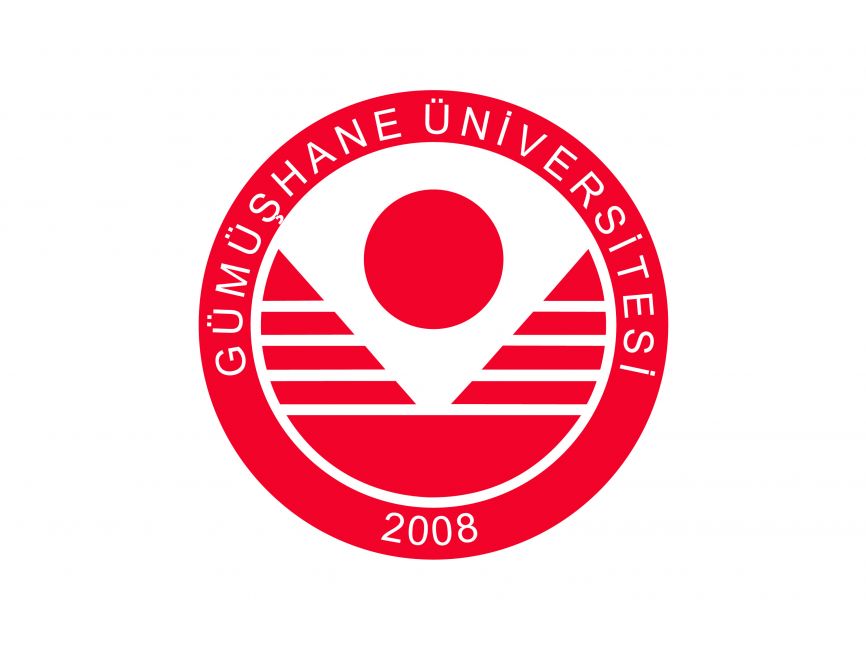Electric
Overview
<!-- wp:paragraph --> <p><strong>Program Description</strong><br><strong>Electric Program at Gümüşhane University: Innovating the Future of Technology</strong></p> <!-- /wp:paragraph --> <!-- wp:paragraph --> <p>The Electric program at Gümüşhane University is designed to provide students with a solid foundation in the principles and practices of electrical systems and technologies. The program offers in-depth knowledge of electrical circuits, control systems, power generation and distribution, as well as the design and maintenance of electrical equipment. Students will also gain practical experience in problem-solving, system optimization, and modern technological applications in the electrical industry. Through a combination of theoretical courses, practical labs, and internships, graduates will be fully prepared to contribute to advancements in energy, telecommunications, electronics, automation, and related fields.</p> <!-- /wp:paragraph --> <!-- wp:paragraph --> <p><strong>Program Mission and Vision</strong><br>The mission of the Electric program at Gümüşhane University is to educate and train skilled professionals who can design, develop, and manage electrical systems and technologies. The program emphasizes critical thinking, creativity, and problem-solving skills, preparing graduates to tackle challenges in the rapidly evolving technological landscape. Its vision is to produce experts who will lead the development of sustainable and efficient electrical technologies and contribute to societal progress.</p> <!-- /wp:paragraph --> <!-- wp:paragraph --> <p><strong>Curriculum Structure</strong><br>The Electric program is structured to provide students with a comprehensive education, combining both theoretical knowledge and practical skills. The curriculum covers the core concepts of electrical systems as well as advanced topics related to modern electrical technologies and their applications. Key courses in the curriculum include:</p> <!-- /wp:paragraph --> <!-- wp:paragraph --> <p><strong>Core Electric Courses</strong></p> <!-- /wp:paragraph --> <!-- wp:paragraph --> <p><strong>Introduction to Electric Systems</strong>: This foundational course introduces students to the field of electricity, including basic concepts of electricity, circuit theory, and electrical systems. Students will understand the role of professionals in designing and maintaining electrical systems.</p> <!-- /wp:paragraph --> <!-- wp:paragraph --> <p><strong>Circuit Theory and Analysis</strong>: This course covers the basics of electrical circuits, including Ohm’s law, Kirchhoff’s laws, circuit theorems, and AC/DC analysis. Students will learn how to analyze and solve complex electrical circuits.</p> <!-- /wp:paragraph --> <!-- wp:paragraph --> <p><strong>Electromagnetism</strong>: Students will study the fundamentals of electromagnetism, including electric fields, magnetic fields, and their interactions. Topics covered include electromagnetic waves, induction, and Maxwell’s equations.</p> <!-- /wp:paragraph --> <!-- wp:paragraph --> <p><strong>Digital Systems and Logic Design</strong>: This course focuses on digital electronics and logic circuit design. Students will learn about binary systems, logic gates, flip-flops, and the design of digital circuits using both combinational and sequential logic.</p> <!-- /wp:paragraph --> <!-- wp:paragraph --> <p><strong>Electrical Machines and Power Systems</strong>: Students will gain knowledge of the design, operation, and maintenance of electrical machines, including motors, transformers, and generators. The course also covers the generation, transmission, and distribution of electrical power.</p> <!-- /wp:paragraph --> <!-- wp:paragraph --> <p><strong>Control Systems</strong>: This course teaches the principles of control theory and its application in electrical systems. Topics include feedback control, stability analysis, and system modeling, with applications in automation and electrical devices.</p> <!-- /wp:paragraph --> <!-- wp:paragraph --> <p><strong>Power Electronics</strong>: Students will learn about the electronic devices and systems used to control and convert electrical power. The course includes study of semiconductor devices, rectifiers, inverters, and the design of power supplies.</p> <!-- /wp:paragraph --> <!-- wp:paragraph --> <p><strong>Signal Processing and Communication Systems</strong>: This course covers signal analysis and processing, including filtering, sampling, and modulation techniques. It also introduces communication systems, such as wireless communication and data transmission.</p> <!-- /wp:paragraph --> <!-- wp:paragraph --> <p><strong>Renewable Energy Systems</strong>: Students will study renewable energy sources, including solar, wind, and hydropower. The course covers the integration of renewable energy into electrical grids and the development of sustainable energy systems.</p> <!-- /wp:paragraph --> <!-- wp:paragraph --> <p><strong>Microprocessors and Embedded Systems</strong>: This course introduces students to microprocessors and their use in embedded systems. Topics include microcontroller programming, hardware interfacing, and the development of embedded applications in electrical systems.</p> <!-- /wp:paragraph --> <!-- wp:paragraph --> <p><strong>Electrical Power Distribution and Protection</strong>: Students will learn about the design, operation, and protection of electrical power systems, including distribution networks and electrical safety. Topics include fault detection, protection devices, and the stability of power grids.</p> <!-- /wp:paragraph --> <!-- wp:paragraph --> <p><strong>Electronics and Instrumentation</strong>: This course focuses on the design and use of electronic devices and instruments for measurement and control, such as sensors, transducers, and instrumentation systems used in electrical systems.</p> <!-- /wp:paragraph --> <!-- wp:paragraph --> <p><strong>Engineering Ethics and Professional Practice</strong>: Students will explore the ethical responsibilities of professionals, including the societal and environmental impacts of their decisions, professional conduct, communication, and teamwork in electrical projects.</p> <!-- /wp:paragraph --> <!-- wp:paragraph --> <p><strong>Industrial Applications and Automation</strong>: This course focuses on integrating electrical systems with industrial applications, including automation, robotics, and smart manufacturing. Students will work with programmable logic controllers (PLCs) and automation systems used in modern industries.</p> <!-- /wp:paragraph --> <!-- wp:paragraph --> <p><strong>Capstone Project</strong>: The program concludes with a capstone project, where students apply their knowledge to solve a real-world problem in electrical systems. They will work in teams to design, develop, and present their projects, demonstrating their ability to integrate learning into practical applications.</p> <!-- /wp:paragraph --> <!-- wp:paragraph --> <p><strong>State-of-the-Art Facilities and Labs</strong><br>Gümüşhane University provides state-of-the-art laboratories and workshops, fully equipped with the latest tools and equipment for electrical systems. These facilities allow students to experiment with electrical systems in real-world contexts, from basic circuits to advanced automation and control systems.</p> <!-- /wp:paragraph --> <!-- wp:paragraph --> <p><strong>Emphasis on Practical Experience and Industry Collaboration</strong><br>The Electric program places a strong emphasis on practical experience. Students participate in internships and industrial placements where they gain hands-on experience in real-world electrical applications, working alongside professionals in the field.</p> <!-- /wp:paragraph --> <!-- wp:paragraph --> <p><strong>Career Opportunities</strong><br>Graduates of the Electric program are well-prepared for careers in a wide range of industries, including energy, telecommunications, electronics, automation, and manufacturing. Career options include roles such as electric systems specialist, power systems technician, control systems expert, electronics designer, and renewable energy technician. Graduates may also choose to pursue advanced studies in related fields.</p> <!-- /wp:paragraph --> <!-- wp:paragraph --> <p><strong>Shaping the Future of Electric Systems</strong><br>The Electric program at Gümüşhane University prepares students to become forward-thinking professionals who will shape the future of electrical systems. With a focus on innovation, practical skills, and industry collaboration, the program ensures that graduates are ready to meet the challenges of the modern technological landscape and play an active role in shaping the future of the electrical industry.</p> <!-- /wp:paragraph -->
Program Description
The Electric program at Gumushane University offers a comprehensive curriculum designed to prepare students for successful careers in this dynamic field. The program combines theoretical knowledge with practical skills, ensuring graduates are ready for the challenges of the industry.
The program is taught by experienced faculty members who are leaders in their respective fields, providing students with insights into current industry practices and future trends.
Curriculum Highlights
- Advanced Research Methods: Learn cutting-edge research techniques and methodologies.
- Industry Analysis: Explore current industry trends and develop analytical skills.
- Leadership and Management: Develop essential leadership skills for managing teams and projects.
- Innovation and Entrepreneurship: Cultivate creative thinking and entrepreneurial mindset.
- Digital Transformation: Understand how technology is reshaping industries and businesses.
- Sustainable Development: Explore environmentally sustainable practices and their implementation.
- Global Markets: Study international market dynamics and global business operations.
- Technology Integration: Learn to leverage technology for improved business outcomes.
Requirements:
- Bachelor's degree (for Master's programs) or equivalent qualifications.
- Proven English language proficiency (IELTS 6.5+ or equivalent).
- Complete transcripts from previous education.
- A compelling letter of motivation explaining your interest in the program.
- Two letters of recommendation from academic or professional references.
- Valid passport with appropriate visa status or eligibility.
Benefits:
- World-class faculty with extensive industry experience.
- Modern campus facilities and cutting-edge learning environments.
- Strong industry partnerships providing networking opportunities.
- Internship opportunities with leading companies in the field.
- Comprehensive career services including job placement assistance.
- Access to a global alumni network for lifelong professional connections.
Begin your educational journey today.
Apply now and take the first step towards your future.






